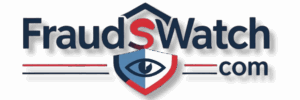Insurance Fraud Types Protections and Suggestions
Insurance fraud is the act of intentionally deceiving or misrepresenting information to an insurance company for financial gain. It is a serious crime that can lead to legal consequences, including fines and imprisonment. Insurance fraud can take many forms, and perpetrators can be individuals or businesses. In this article, we will discuss some of the most common types, and how to protected yourself of insurance fraud.
Table of Contents
Most Types Of Insurance Fraud
- Staged Accidents – In this type of fraud, one or more individuals intentionally cause a collision with another vehicle or pedestrian to file a false insurance claim and receive compensation for the damages.
- Faking Injuries – An individual may claim that they were injured in an accident when they were not, exaggerate their injuries, or claim that they have ongoing medical issues to receive a larger settlement from their insurance company.
- Arson – This involves intentionally setting fire to property to collect insurance proceeds. For example, a business owner may set fire to their property and then file a false insurance claim for the damages.
- Fake Theft Claims – An individual may report stolen property to an insurance company when the property was not actually stolen. This can involve making up a story about a break-in or theft, inflating the value of the stolen property, or even selling the property and then reporting it as stolen.
- Inflating Damages – This type of fraud involves exaggerating the cost of damages in an insurance claim. For example, an individual may submit a claim for a minor car accident but claim that the damages are much more severe than they actually are.
- False Liability Claims – This involves making a claim against another individual or business for damages that were not their fault. For example, an individual may claim that they slipped and fell on a wet floor in a store and then file a false claim against the business for medical expenses and lost wages.
- Fraudulent Workers’ Compensation Claims – This involves faking an injury or exaggerating the severity of an injury to receive a larger settlement from workers’ compensation insurance.
- Premium Fraud – This involves intentionally providing false information to an insurance company to obtain lower insurance premiums. For example, an individual may provide false information about their driving record or the number of miles they drive each year to obtain a lower auto insurance premium.
- Medical Provider Fraud – This involves healthcare providers submitting false claims to insurance companies, such as billing for services that were not provided, billing for more expensive services than were actually provided, or submitting false medical records to support the fraudulent claim.
- Forgery – This involves forging signatures on insurance documents or creating false insurance documents to support a fraudulent claim.
- Phantom Claims – This involves submitting a false insurance claim for a loss that did not actually occur. For example, an individual may claim that their car was stolen when it was not, or that their house was damaged in a storm when it was not.
- Fraudulent Life Insurance Claims – This involves faking a death or exaggerating the cause of death to collect life insurance proceeds.
- Overbilling – This involves healthcare providers billing insurance companies for more services or more expensive services than were actually provided.
- Unlicensed Insurance Companies – This involves individuals or businesses posing as insurance companies to sell fake insurance policies and collect premiums.
- Travel Insurance Fraud – This involves filing false claims for travel insurance, such as claiming that a trip was canceled due to a covered reason when it was not, or claiming that medical treatment was needed on a trip when it was not.
These are just a few examples of the many different types of insurance fraud that exist. It’s important to note that insurance fraud is a serious crime that can result in legal consequences, including fines and imprisonment.
How To Protected From Insuarance Fraud?
As an individual or business, there are steps you can take to defend yourself from insurance fraud. Here are some tips to help protect yourself from insurance fraud:
Individual
- Understand Your Insurance Policy: Read your insurance policy thoroughly and understand the coverage and limits. This will help you identify any fraudulent claims or suspicious activity.
- Keep Detailed Records: Keep detailed records of all transactions related to your insurance policy, including claim forms, receipts, and bills. This will help you identify any discrepancies or fraudulent activity.
- Be Vigilant: Be vigilant and aware of suspicious behavior or activity. If something seems too good to be true, it probably is.
- Don’t Sign Blank Forms: Never sign a blank insurance form or allow someone else to sign on your behalf. This could result in fraudulent claims being submitted in your name.
- Verify Information: Verify all information provided by your insurance provider or claims adjuster, including the name and contact information of the insurance company and the validity of any documents or bills received.
- Report Suspicious Activity: Report any suspicious activity to your insurance company or the appropriate law enforcement agency. This includes any unusual or suspicious claims, billing statements, or insurance offers.
- Use Trusted Providers: Use trusted and reputable insurance providers and service providers. Research companies and providers before signing up for insurance policies or services.
By taking these steps, you can help protect yourself from insurance fraud and minimize the risk of financial loss or legal consequences. If you suspect that you have been a victim of insurance fraud, contact your insurance company or local law enforcement agency immediately.
Bussines
Defending against insurance fraud requires a multi-faceted approach that involves a combination of prevention, detection, and response strategies. Here are some ways to defend against insurance fraud:
- Educate Yourself and Employees: It’s important to educate yourself and your employees about insurance fraud, including the different types of fraud and how to detect it. Provide training on what to look for and what to do if fraud is suspected.
- Implement Strong Policies and Procedures: Establish strong policies and procedures for managing insurance claims and underwriting. These policies should include measures to detect fraud, such as requiring documentation and independent verification of claims.
- Use Technology: Utilize technology to help prevent and detect insurance fraud. This can include data analytics to identify patterns of fraudulent behavior and artificial intelligence to help detect fraud in real-time.
- Conduct Background Checks: Conduct thorough background checks on new employees and business partners to help identify potential fraud risks.
- Partner with Law Enforcement: Partner with law enforcement agencies to help investigate and prosecute insurance fraud cases.
- Have a Response Plan: Develop a response plan for how to handle suspected insurance fraud cases. This plan should include steps for investigating suspected fraud, reporting it to law enforcement, and taking legal action if necessary.
- Implement Fraud Detection Tools: Use fraud detection tools, such as predictive modeling and anomaly detection, to help identify potentially fraudulent claims.
- Verify Information: Verify all information provided by claimants, including personal information, medical records, and billing information.
- Monitor Claims: Monitor claims throughout the entire claims process to identify any suspicious activity.
- Report Fraud: Report suspected insurance fraud to the appropriate authorities, such as state insurance regulators or law enforcement agencies.
By implementing these strategies, individuals and businesses can help defend against insurance fraud and protect themselves from the financial and reputational damage caused by fraudulent activity.
Who Is Behind An Insurance Fraud?
Behind insurance fraud, there are often individuals or groups who intentionally deceive insurance companies for financial gain. These individuals or groups may be motivated by various factors, including financial difficulties, a desire for personal gain, or greed.
Insurance fraud can be committed by policyholders, third-party service providers such as healthcare providers or contractors, or even by insurance company employees themselves. In some cases, organized crime groups may engage in insurance fraud schemes to generate illicit profits.
Some common motivations behind insurance fraud include:
- Financial Gain: Individuals or groups may commit insurance fraud to obtain financial gain, such as receiving a payout from an insurance claim that they are not entitled to.
- Financial Hardship: Some individuals may commit insurance fraud out of financial desperation, such as when they are facing financial difficulties or struggling to pay bills.
- Criminal Intent: In some cases, individuals may commit insurance fraud as part of a broader criminal enterprise, such as organized crime syndicates.
- Personal Gain: Individuals may commit insurance fraud to obtain benefits or services that they would not otherwise be entitled to, such as free medical treatment or a replacement vehicle.
Regardless of the motivations behind insurance fraud, the impact can be significant for everyone involved, including the insurance companies, policyholders, and society as a whole. It is important to prevent and detect insurance fraud in order to protect the integrity of insurance systems and ensure that legitimate claims are paid out in a fair and timely manner.
Conclusion
In conclusion, insurance fraud is a serious issue that affects everyone involved in the insurance system, including policyholders, insurance companies, and society as a whole. Insurance fraud can take many forms, from filing false claims to inflating the value of claims, and it can be committed by individuals, groups, or businesses.
Insurance fraud can result in significant financial losses for insurance companies and policyholders, and it can lead to higher insurance premiums and reduced availability of coverage for legitimate claims. Insurance fraud is also considered a criminal offense and can result in serious legal consequences, including fines and imprisonment.
To defend against insurance fraud, it is important to be vigilant and aware of suspicious activity, to keep detailed records of all transactions, and to report any suspicious behavior to your insurance company or local law enforcement agency. By taking these steps, we can work together to prevent and detect insurance fraud and ensure that legitimate claims are paid out in a fair and timely manner.


